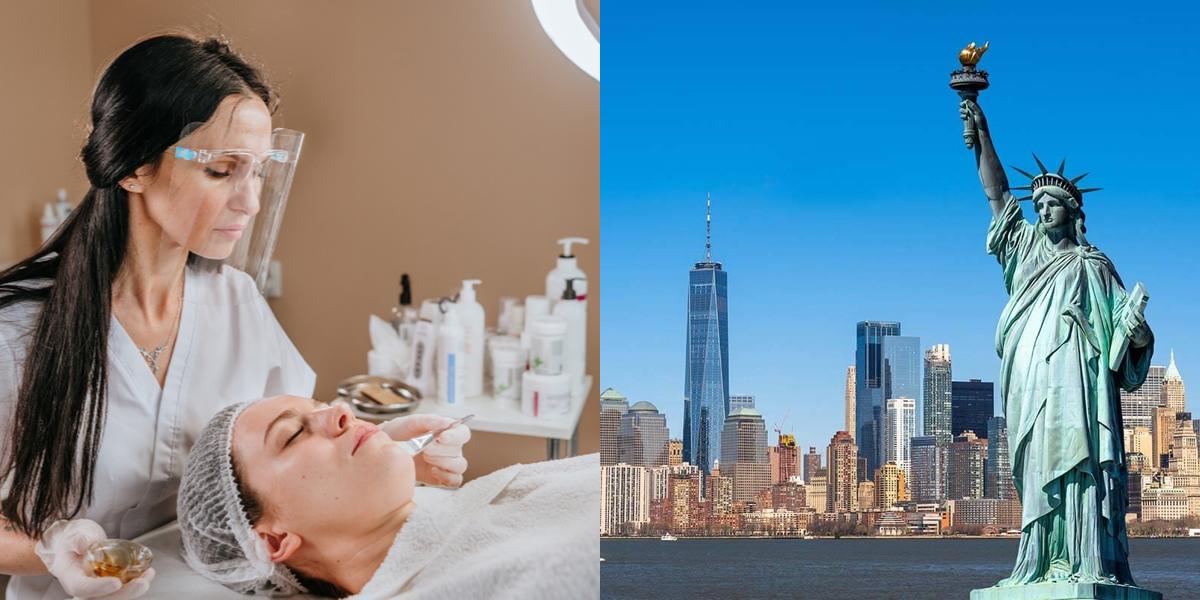How to Become an Esthetician in New York

What is an Esthetician?
An esthetician is a skincare specialist who provides various beauty treatments to clients. Their responsibilities include analyzing skin conditions, performing facials, applying makeup, providing hair removal services, and offering advice on skincare routines. Estheticians are also knowledgeable about different skincare products and techniques.
How do I get a job as an Esthetician?
Getting a job as an esthetician requires a combination of education, training, and experience. Here are some steps you can take to increase your chances of finding a job as an esthetician:
-
Build a strong resume: Start by creating a professional resume that highlights your education, training, and any relevant work experience. Be sure to include any certifications or specialized training you have received, as well as any customer service or sales experience.
-
Create a portfolio: As an esthetician, it's important to have a portfolio of your work to show potential employers. Include before and after photos of clients you have worked with, as well as any special techniques or treatments you have performed.
-
Network with professionals in the industry: Reach out to local estheticians, salon owners, and other professionals in the beauty industry. Attend industry events and join professional organizations to expand your network and learn about job opportunities.
-
Apply for job openings: Keep an eye out for job openings at salons, spas, and other beauty establishments. Many job openings are not publicly advertised, so it's important to proactively reach out to potential employers and submit your resume.
-
Consider additional certifications: In addition to your esthetician license, consider obtaining additional certifications in specialized areas of skincare, such as chemical peels or microdermabrasion. These additional certifications can make you more marketable to potential employers.
-
Prepare for interviews: Before attending interviews, research the company and familiarize yourself with their services and clientele. Practice answering common interview questions and be prepared to demonstrate your skills or perform a treatment if requested.
-
Gain experience through internships or apprenticeships: If you are having trouble finding a job right away, consider gaining experience through internships or apprenticeships. These opportunities can help you build your skills and make valuable connections in the industry.
-
Stay up to date with industry trends: The beauty industry is constantly evolving, so it's important to stay up to date with the latest trends and techniques. Attend workshops and continuing education courses to expand your knowledge and demonstrate your commitment to professional growth.
Career Paths and Opportunities after Becoming an Esthetician
After becoming a certified esthetician, there are a variety of career paths and opportunities available to you. Here are some potential career options:
-
Salon or spa esthetician: Many estheticians work in salons or spas, providing a range of skincare services to clients. This can include facials, waxing, body treatments, and makeup application. Some estheticians also offer specialized services, such as eyelash extensions or microblading.
-
Medical esthetician: Medical estheticians work in dermatology offices, medical spas, or plastic surgery clinics. They often perform more advanced skincare treatments, such as chemical peels, laser hair removal, and microdermabrasion. Medical estheticians may also work closely with dermatologists or plastic surgeons to provide pre- and post-operative skincare treatments.
-
Product sales representative: With your knowledge and expertise in skincare, you may choose to work as a sales representative for a skincare or beauty product company. In this role, you would educate clients and professionals about the benefits of the products and help them select the best products for their needs.
-
Makeup artist: If you have a passion for makeup, you could pursue a career as a makeup artist. Many estheticians offer makeup application services as part of their esthetician business. You could also work as a freelance makeup artist for special events, weddings, or photo shoots.
-
Skincare educator: As an experienced esthetician, you may choose to share your knowledge and expertise by becoming a skincare educator. This could involve teaching at an esthetician school, leading workshops or seminars, or creating online courses or tutorials.
-
Entrepreneurship: Many estheticians choose to start their own businesses. This could include opening your own salon or spa, offering mobile esthetician services, or creating your own line of skincare products. Starting your own business requires careful planning and marketing, but can be a rewarding and fulfilling career path.
Final Thoughts
Becoming a certified esthetician can open up a world of opportunities in the beauty industry. Whether you choose to work in a salon, spa, medical office, or start your own business, the skills and knowledge you gain as an esthetician will serve you well throughout your career. By completing an esthetician program, obtaining your license, and gaining practical experience, you will be well on your way to a successful and rewarding career as an esthetician.
If this article doesn't match what you're looking for, you can check out these other articles:

Jessa Guzon is a member of the School Growth and Customer Success Team in Dreambound. She finds joy in assisting both schools and students in reaching their goals by answering their queries and connecting them with the right people. Outside her professional role, Jessa is a happy-go-lucky person with a thirst for adventure.



